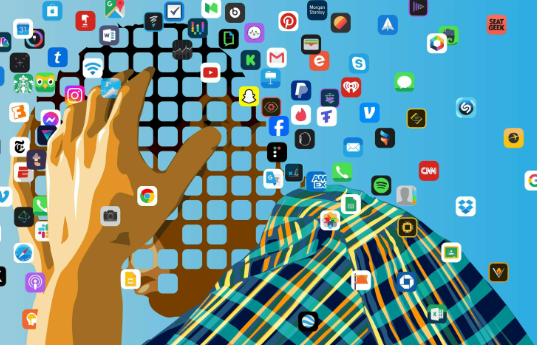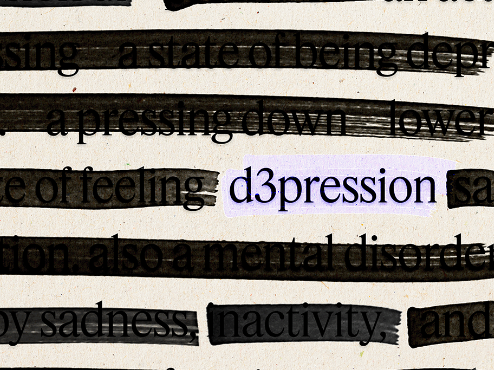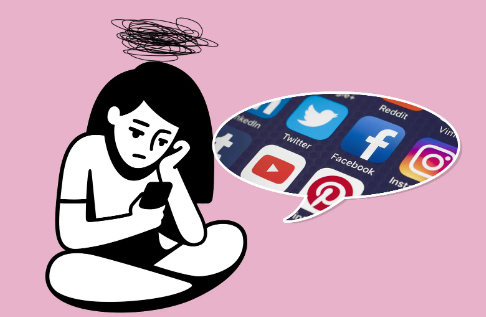
Social Media is Negatively Impacting Your Mental Health, Doomscrolling Dilemma 5 Powerful Ways
Social Media Minefield: Understanding the Mental Health Impact and Empowering Well-being
In today’s digital age, the allure of social media beckons us to stay connected and informed. While the virtual realm offers a sense of constant connectivity and companionship, the flip side reveals a landscape fraught with challenges that can significantly impact mental health. The constant influx of information, coupled with the phenomenon of “doomscrolling,” has ushered in a new era where the implications on our well-being are profound.

The Deceptive Allure of Social Media:
Social media, touted as a bridge to loved ones and a remedy for loneliness, presents a paradox. Despite its ability to foster connections with a simple click, the platform’s portrayal of an idealized life can have detrimental effects on individuals with low self-esteem, depression, or anxiety disorders. The allure of an attractive online world may lead to decreased engagement in real-life interactions, fostering a false sense of connection. The repercussions include heightened feelings of loneliness, anxiety, and depression, which take a toll on mental health.
Doomscrolling and its Cognitive Impact:
The compulsion to stay glued to it , particularly during challenging times like the Covid-19 pandemic, has given rise to the phenomenon known as doomscrolling. This habit involves endlessly scrolling through distressing news, contributing to heightened stress levels and a negative impact on mental health. Mental health counselor Aanandita Vaghani sheds light on the ways social media and doomscrolling affect our well-being.

Negative Impact of Social Media on Mental Health:
- Body Image Distortion: The pervasive influence of it , especially on women, can distort perceptions of body image. In an era where filtered perfection takes precedence over body positivity, individuals, particularly those with low self-esteem and a history of eating disorders, may harbor negative thoughts about their bodies.
- Diminished Real-world Connections: Studies indicate that heavy social media use correlates with a reduced sense of social connectedness. Passive engagement, where individuals consume content without actively participating, is linked to lower efforts in seeking real-world social connections, diminished well-being, and increased stress.
- Neurological Impact Comparable to Drugs: Neuroscientists studying the effects of social media on the brain reveal that positive interactions online trigger chemical reactions akin to those caused by recreational drugs. Dopamine, the pleasure-inducing neurotransmitter, is released with it notifications, creating a cycle of craving attention through likes, retweets, and comments.
- Attentional Challenges and ADHD Sensitivity: Overuse of social media, coupled with sedentary behavior, can exacerbate attentional challenges, particularly in individuals with Attention Deficit Hyperactivity Disorder (ADHD). For others, it can still contribute to a decreased attention span, impacting engagement with various aspects of life.
- Balancing Virtual and Real-world Connections: Recognizing the importance of real-world connections is crucial for mitigating the adverse effects of social media. Encouraging individuals to strike a balance between their online and offline lives can enhance social connectedness, well-being, and stress resilience.
As we navigate this complex interplay between technology and mental health, it becomes imperative to empower individuals with strategies to mitigate the negative impacts of it. Recognizing the potential pitfalls and fostering a conscious approach to digital consumption can pave the way for a healthier relationship with the virtual world, ultimately nurturing mental well-being in an age of constant connectivity.

Collaborative efforts between social media platforms and mental health professionals can lead to the development of features and interventions that prioritize user well-being. Implementing tools for recognizing harmful content, providing mental health resources, and encouraging positive engagement can contribute to a safer and more supportive online environment.

The intricate relationship between social media and mental health requires a multifaceted approach. By acknowledging the challenges and implementing proactive strategies, individuals can reclaim control over their digital experiences. Empowering mental well-being in the age of it involves fostering a conscious and balanced interaction with the virtual world, ultimately contributing to a healthier and more resilient society.
For the latest updates-click here.


